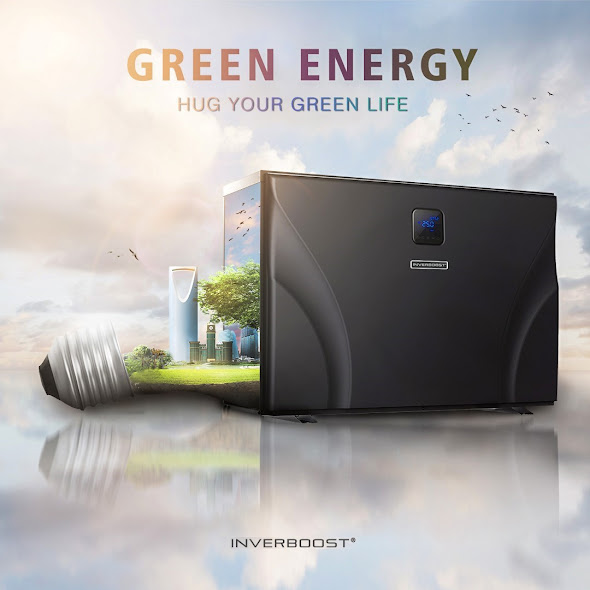The Maintenance And Inspection Of Inverter Pool Heat Pump
Inverter Heat pump pool heaters

Inverter swimming pool heat pump maintenance goals:
- Ensuring that the operation of the system meets the needs of users is the main goal of unit maintenance;
- Maintenance reduces operating costs, and operating costs are the purpose of unit maintenance management;
- Maintenance to ensure the service life of the unit.
1. Check The Water Supply Equipment Frequently
Check the water supply equipment frequently to avoid the occurrence of air entering the system and low water flow. Because after the air enters the system, part of the heat will be lost. Too low water flow will waste part of the heat, thereby reducing the performance and reliability of the INVERBOOST commercial pool heat pump.
2. Cleaned Swimming Pool Frequently And Filtered Regularly
The swimming pool should be cleaned frequently and filtered regularly to avoid damage to the commercial pool heat pump due to clogging of the filter. Because the filter blockage is likely to cause the water flow to be too low.
Long-term low water flow will make the long-term heat transferred by the commercial pool heat pump not be effectively used, which is equivalent to leaving the commercial pool heat pump idling for a long time, thereby damaging the commercial pool heat pump.
3. Environment Should Be Installed In A Dry, Clean, And Well-Ventilated
The INVERBOOST commercial pool heat pump unit environment should be installed in a dry, clean, and well-ventilated place. It is necessary to clean the evaporator regularly (recommended every 6–12 months) to maintain a good heat exchanger capacity and save energy.
4. Qualified Maintenance Technicians
All maintenance and inspection of the INVERBOOST commercial pool heat pump must be performed by qualified maintenance technicians.
5. Check Whether The Cables And Wires Are Well Connected
Check whether the cables and wires are well connected to prevent a short circuit of the electric circuit, which may damage the INVERBOOST commercial pool heat pump.
6. Check The Power Cord Connection.
Check the power cord connection. If the INVERBOOST commercial pool heat pump is not working properly, it should be turned off immediately and contact the relevant technical personnel.
7. Take Antifreeze Measures In Winter
If the INVERBOOST commercial pool heat pump is not used in winter, anti-freezing measures should be taken to completely drain the inverter commercial pool heat pump unit, water pump, and other water systems to avoid unit failure.
Because in the winter when the temperature is below zero, if the inverter commercial pool heat pump is not operated, the water in the titanium exchanger will freeze as it reaches the freezing point, which may cause the titanium exchanger and other pipes to rupture and cause the inverter commercial pool heat pump to malfunction.
8. Drain The Water From The Sewage Outlet
If the inverter commercial pool heat pump unit stops running for a long time, drain water from the sewage outlet to prevent the inverter commercial pool heat pump from failing due to forgetting to drain in winter.
Conversely, if you need to restart the inverter commercial pool heat pump unit, you must first thoroughly check whether the inverter commercial pool heat pump unit, water pump, and other water systems are filled with water, and then start the inverter commercial pool heat pump unit operation.
To prevent the presence of air in the pipeline, causing the inverter commercial pool heat pump to dry out, reducing the efficiency of the inverter commercial pool heat pump, and even damaging the inverter commercial pool heat pump.
As the old saying goes, if you want to live well, you have to take care of your body. The same goes for machines. If the machine wants to use for a long time, it also needs to spend some effort on maintenance. An air-energy heat pump is a complex machine, mainly composed of the evaporator, condenser, compressor, expansion valve, etc. Its use depends on the joint action of different parts.
Related: How to Choose the Best Above Ground Pool Heaters?

Comments
Post a Comment